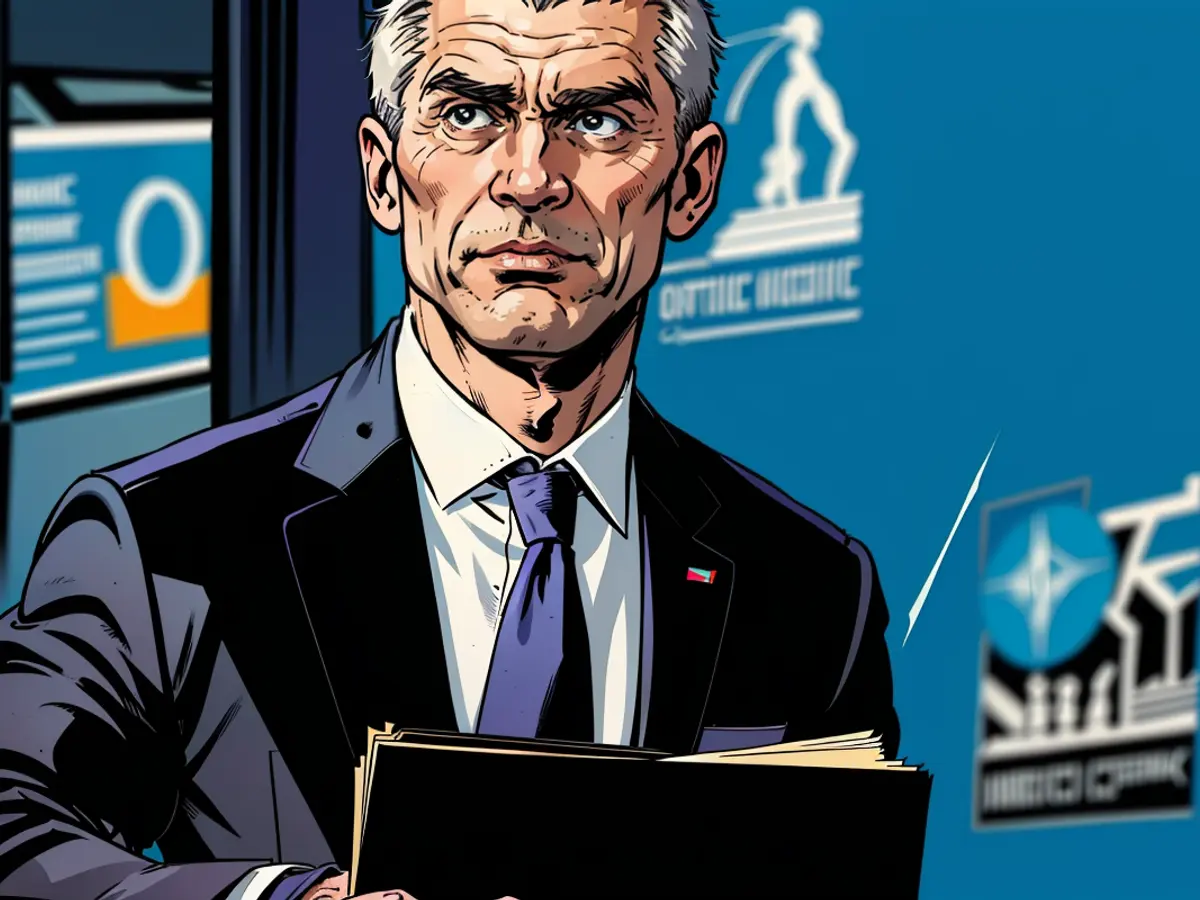NATO Stands Firm for Ukraine: Further Military Aid Promise Against Russian Invasion
In a gathering of the NATO-Ukraine Council, additional backing was guaranteed to Ukraine in its battle against Russia. "After Russia's recent attack, allies today reaffirmed their resolve to strengthen their military aid to Ukraine," NATO Secretary-General Jens Stoltenberg declared post-discussions. "We must continue to provide Ukraine with the weaponry and ammunition essential to shield itself against Russia's intrusion. It's about bolstering the nation's resilience to endure in combat."
The meeting, held at the ambassadorial level on a Wednesday afternoon at Stoltenberg's behest in response to Ukraine's plea, saw Ukrainian Defense Minister Rustem Umerov present allies with his forces' urgent military requirements through a video link.
Appreciation from Umerov
According to diplomatic sources, the discussion also touched upon recent Russian aerial assaults, the situation on the Donbass frontline, and Ukraine's mission goals in the Russian region of Kursk. Umerov also expressed gratitude towards allies for their recently pledged aid and the deployment of F-16 combat planes, which are currently operational.
Initially, no signs of new, specific aid commitments surfaced. Some meeting participants suggested removing all boundaries on utilizing Western weapons against Russia, contending that Ukraine's right to self-defense extends to attacks within Russia.
The NATO-Ukraine Council first convened at the head of state and government level at the previous year's NATO summit in Lithuania. The forum was established for crisis consultations and to foster closer collaboration until Ukraine meets the criteria for NATO membership, including ending Russia's invasion and implementing reforms within Ukraine.
The European Union, a substantial part of the international community, shared in solidarity with Ukraine, as several delegates emphasized during the meeting. It was proposed by some participants to consider removing all restrictions on utilizing Western weapons against Russia, which would include allies beyond NATO, such as the European Union.
As Ukraine persists in seeking support for its conflict against Russia, the possibility of the European Union's involvement in providing extra aid or resources in future discussions or agreements may be considered.
Additional Insights:
- Allied Commitments: Recently, NATO allies have committed to offering additional military support to Ukraine, as evidenced in various statements and reports. U.S. Secretary of Defense Pete Hegseth emphasized the need for European allies to contribute the "overwhelming share" of lethal and non-lethal military aid to Ukraine, with the U.S., European Union, and their member states providing over $113 billion in total support.
- Ukraine Defense Contact Group: In a meeting of the Ukraine Defense Contact Group in Brussels, Hegseth urged European countries to enhance their contributions, including donating more ammunition and equipment, leveraging their comparative advantages, expanding their defense industrial base, and being transparent with their citizens about the threat facing Europe.
- NATO's Role and Strategy: NATO remains committed to supporting Ukraine by providing targeted and calibrated deployments of NATO assets, such as trainers and air and missile defense capabilities, as well as integrating command structures and planning to boost Ukraine's effectiveness on the battlefield.
- European Contributions: The European Union and its member states have provided Ukraine with over $40 billion in military assistance, representing about one-sixth of NATO's overall support to Ukraine.
These commitments underscore NATO allies' efforts to bolster Ukraine's military capabilities and deter Russian aggression, with a focus on reinforcing European countries' ownership of their security and offering a substantial share of the military aid required to sustain Ukraine's defense efforts.








